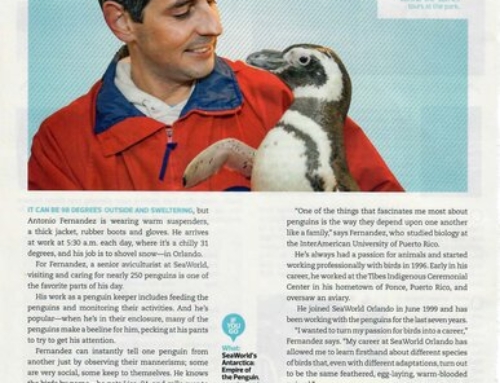Knowledge Conquers Fear: October is Spina Bifida Awareness Month
You may remember my Oct. 11 post about my pal, Laurita Tellado, the amazing blogger who is bringing attention to Spina Bifida, a birth defect in which the backbone and spinal canal do not close before birth. Laurita is currently raising awareness (and funds) for a team she is convening at the Spina Bifida Association of Central Florida’s Inaugural Walk-N-Roll, scheduled for October 29 in Orlando, Fla.
Today, members of social media’s most prominent Latino online influencers – bloggers, business owners and networks – have partnered to educate audiences on Spina Bifida and support Laurita’s fundraising efforts!
The Walk-N-Roll Spina Bifida Blog Carnival is being led by another amazing Latina, Angélica Pérez-Litwin, PhD, publisher and CEO of New Latina.
Angélica gave me an opportunity to write a guest post on New Latina about Team Roxy. I also had a chance to interview Angélica for a recent LatinaStyle article.
We need more initiatives like this one — when we unite and collaborate, big things happen!
Please read Laurita’s post below and donate to the cause on Laurita’s Chipin Page.
Thank you!
Ashley
**********************************************************************************
October is an eerie month, filled with monsters, mummies, and the macabre. But while the occasional witch or skeleton might freak you out, one must concede that there are indeed more frightening things– like finding out your child will be born with spina bifida.
And yet, each day in the U.S., an average of eight families welcome a child with spina bifida into the world. Annually, an estimated 1,500 infants are born with spina bifida each year in the U.S.
I was born with spina bifida nearly two and a half decades ago. The diagnosis came as a total shock to my family, along with an entire set of secondary complications. I was also born with hydrocephalus, or “water on the brain.” During the first ten years of my life, it seemed I was in the hospital every other week with a bladder infection or shunt malfunction. I’d be lying if I said this wasn’t really scary at times.
But then, at age ten, I discovered a fantastic way to defeat my worst fears– knowledge. I vowed I would educate myself and read up on the condition that, up until that point, seemed to be taking over my life. Much like a child who imagines a ghost is in his closet, grabs a flashlight and realizes it’s only an old coat, I had come to the realization that, when you take the time to learn about something, no matter how terrifying it may seem at first, everything is less scary in the light of knowledge.
According to the Spina Bifida Association of America, “spina bifida remains the most commonly occurring birth defect in this country.” Just how common is it overall? PubMed Health, the Web site of the U.S. National Library of Medicine, reported in March of this year: “Myelomeningocele
As a 21-year member of the Spina Bifida Association of Central Florida, I’m doing my part to shed light on this condition by raising money for the Walk-N-Roll for Spina Bifida. When my parents and I moved from Puerto Rico to Orlando, Florida in search of better educational and healthcare opportunities for me in 1990, we found a support system away from our family and homeland in joining the SBACFL. My personal search for a public spokesperson for the spina bifida cause, as well as my work as a current member of the SBACFL board of directors, have helped me find my true purpose– galvanizing as many people as possible to support the spina bifida community.
So, in the spirit of shedding light on a little-known condition, and in honor of October, which is Spina Bifida Awareness Month, here are some statistics about spina bifida that might spook you a bit:
- Spina bifida is more common than muscular dystrophy, multiple sclerosis, and cystic fibrosis combined.
- Latinos have the highest incidence of spina bifida out of all the ethnic groups.
- Ireland is the country with the highest incidence of spina bifida in the world.
- About 50 percent of babies with spina bifida areselectively aborted after being diagnosed with spina bifida.
- Doctors recommend that every woman of childbearing age consume 400 micrograms of folic acid daily to help prevent neural tube defects like spina bifida up to 70 percent of the time. In spite of this, there are currently an estimated 166,000 people in the U.S. living with spina bifida– up from just 76,000 just last year.
- About 90 percent of people with spina bifida are also born with hydrocephalus. Many need a shunt inserted near the brain to drain the excess cerebrospinal fluid– and many requiremultiple shunt replacements during their lives.
- Other very common secondary conditions include bladder and bowel incontinence, as well as frequent urinary tract infections.
- After the onset of puberty, young people with spina bifida are more prone to clinical depression than most people. Researchers think this may be due in part to social isolation.
Being able to share this information with all of you today is without a doubt the most empowering and inspiring aspect of my life. I’d love nothing more than to give you that very sense of empowerment. Please publish this post on your own Web site(s), and feel free to add your own personal intro that will make it relevant to your blog followers. As many people as I’ve managed to rally in support of this cause, you have an advantage that I don’t–your audience. So, please share this information with everyone you come into contact with.
Below is a video that explains just why the Spina Bifida Association of Central Florida means so much to me, and why I’m participating in the Walk-N-Roll.
I will be raising money online for Team Holdin’ Out for a Hero until October 29th, when we have our Walk-N-Roll event. Donations can be as small as $5 or as large as $50,000. (Yes, I do like the $50,000 better!) Every cent counts! Every cent of every dollar will go towards supporting families affected by spina bifida in 22 counties in and around the Central Florida region and supporting educational and awareness efforts.
Yes, to the new parent, or even to the already-grown individual, spina bifida can seem like a scary thing to deal with. But there’s a power in numbers and a strength in awareness– a strength that gives us the courage to open the closet, shine the light in the ghost’s face, and reduce it to nothing but an old coat.
Thank you for helping me conquer my biggest fear– ignorance of spina bifida.
~ Laurita Tellado, HoldinOutforaHero.org
–Ashley Cisneros
*****************************************************************************
Ashley Cisneros is a co-founder of Chatter Buzz Media, an Orlando Internet marketing firm that helps companies and organizations engage with their target markets through inbound marketing via the Internet. Chatter Buzz Media, which won the Social Madness competition for the Orlando small business market, is a full-service digital marketing firm specializing in website design, search engine optimization (SEO), social media marketing and content creation. Prior to founding Chatter Buzz, Ashley worked as a newspaper reporter, magazine editor, technical writer, marketing manager, public relations practitioner and freelance journalist. To see Ashley’s content writing, visit www.ashleycisneros.com. You can also reach Ashley on her Google profile.





Leave A Comment